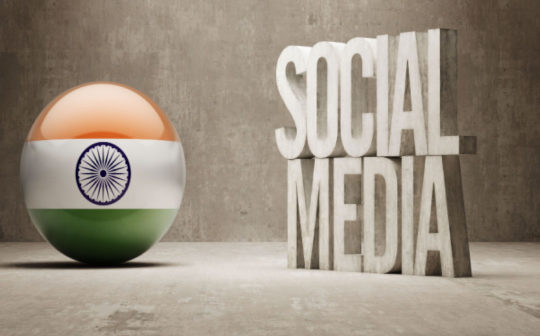
By Sarosh Bana, Mumbai Correspondent.
It is hugely creditable for India’s social media to have remained the country’s last bastion of relatively free speech and expression, in face of sustained threats from the authorities, the latest being a strident warning from the Chief Justice of the Supreme Court, N.V. Ramana.
In a country brought to heel by the autocratic Hindu rightwing Bharatiya Janata Party (BJP) government, social media users have frequently weathered surveillance and arrests under grave charges to exchange views and observations, as also authentic news and information that are often missing from the supine mainstream media.
In a public lecture on “The life of a judge”, Justice Ramana said: “Doing justice is not an easy responsibility. It is becoming increasingly challenging with each passing day. At times, there are also concerted campaigns in the media, particularly on social media, against judges.”
He said there was a growing demand for stricter media regulations and accountability, while urging the media, “particularly the electronic and social media”, to behave responsibly and “self-regulate and measure their words”. These observations raised fears among social media users of a crackdown on their platforms, leading to increased surveillance and greater punitive action. “You should not overstep and invite interference, either from the government or from the courts,” the Chief Justice of India warned. “….When liberties are exercised responsibly, within their domains, there will be no necessity of placing reasonable or proportionate external restrictions.”
Freedom of speech and expression is a cardinal value for most democracies the world over, and the features of electronic messaging, like openness, participation and interactivity, are some crucial reasons behind its worldwide popularity. Freedom of speech and expression is a fundamental right guaranteed by Article 19(1)(a) of the Constitution of India, its Preamble upholding liberty of thought, expression, belief, faith and worship, while characterising India as a sovereign democratic republic. In the US, written, spoken and visual expression posted on the internet is protected under the First Amendment, the judiciary there declaring internet as “the most participatory form of mass speech yet developed”.
India’s social media have for long expressed alarm at what they perceive to be the present government’s increasing intolerance to criticism and dissent. Many users, as well as Opposition leaders, journalists, libertarians and activists, have been tracked down or arrested under harsh sedition and anti-terrorism and anti-nationalism laws for expressing themselves against the government or even for merely forwarding such posts.
Mohammed Zubair, a Muslim youth who is a journalist and co-founder of the fact-checking website, Alt News, was recently imprisoned following First Information Reports (FIRs) registered against him at police stations across the country for having tweeted the poster of a 1983 Hindi film in 2018. He was also paraded through streets while bound with ropes and a posse of police escorting him.
India’s Supreme Court itself, in its 2015 judgment on a sheaf of petitions filed against government highhandedness in dealing with social media users, had struck down Section 66-A of the Information Technology Act, 2000, in its entirety as being violative of Article 19(1)(a). The Section provided for a three-year prison sentence and a stiff fine for anyone sending “offensive messages” by means of a computer resource or a communication device, the “offensive” nature of a message left to the interpretation of the authorities.
The government countered by invoking various draconian laws for even minor offences, finally legislating the Information Technology (Intermediary Guidelines and Digital Media Ethics Code) Rules, 2021, which were framed to regulate social media companies, streaming, and digital news content, and bringing them, for the first time, under government supervision.
Questions have hence been raised as to why the Chief Justice called for sanitising the social media at this juncture, when the government already has at its disposal adequate legislation, and power, to act as it chooses.
On the other hand, the government and its ruling party have cultivated the social media with aplomb, primarily “to counter every step of opposition” and also to highlight government working and the BJP’s policies. It was recently reported that the Tweets of Members of Parliament (MPs) and senior party leaders were being closely assessed by Prime Minister Narendra Modi’s team. These senior leaders have been repeatedly asked to make their presence “visibly noticeable” on their social media platforms.






